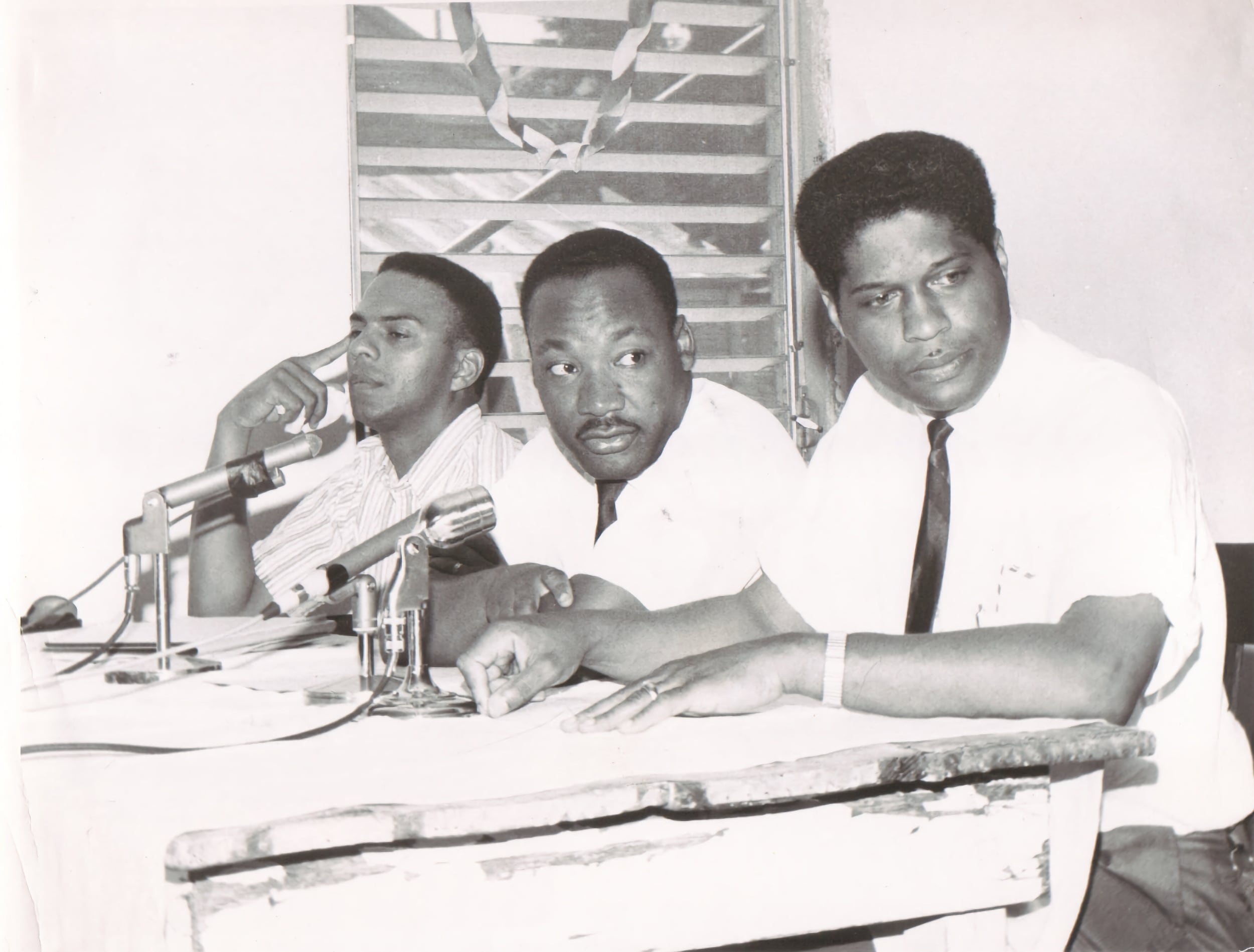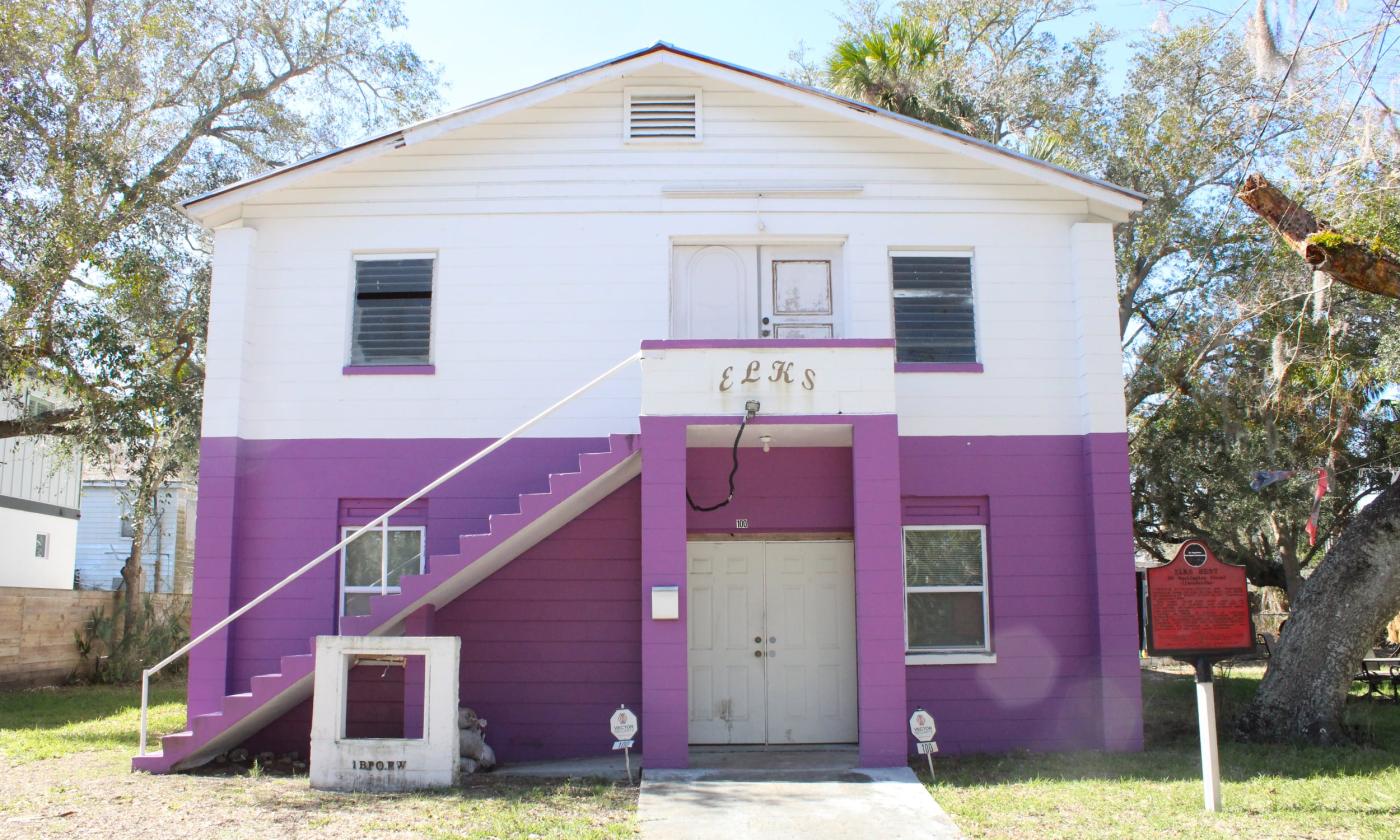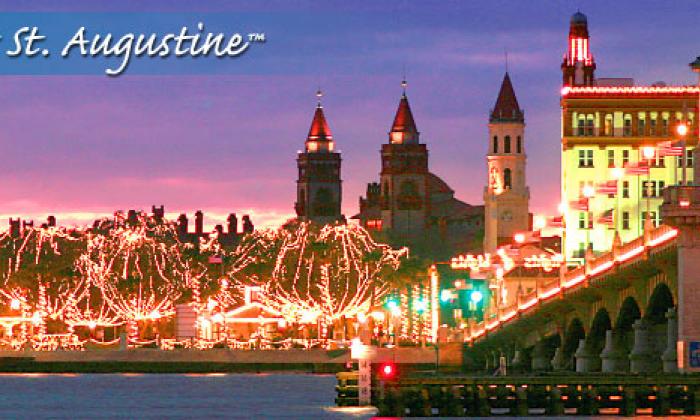Elks Rest
Brief History of the Elks Organization
Englishman Charles Vivian founded the Benevolent and Protective Order of the Elks (BPOE) in 1868 in New York City. His mission was to assist community members in need.
Thirty years later, in Cincinnati, Ohio, African Americans Arthur James Riggs and Benjamin Franklin Howard formed Elks Lodges for Black members, since the organization was racially segregated and would not allow their membership.
Informed they could not use the same title, these Black founders added "Improved" and "of the World" to differentiate their group. The Improved Benevolent and Protective Order of the Elks of the World was founded in 1898.
Elks Rest and the Civil Rights Movement
The opening of the Elks facility in 1958 coincided with an active political climate. Elks and other members of the Lincolnville community used the building for gathering and organizing.
When the Southern Christian Leadership Conference (SCLC) arrived in St. Augustine in 1964 to support the Civil Rights protests, they set up a training center at Elks Rest. The facility became a home base for both local and out-of-town activists.
According to St. Augustine Historian David Nolan, Dr. Robert Hayling (leader of the St. Augustine Movement) invited northern college students to spend their spring break protesting segregation in St. Augustine. Those who heeded the call were instructed to register at Elks Rest upon their arrival.
The Lodge was known for providing refreshments — the historical marker on-site describes it as a CANTEEN AND NUTRITION CENTER and a BIVOUAC: a place for the footsoldiers or protesters to convene. It’s said protestors didn’t soon forget the peanut butter and jelly sandwiches served there as well!

What's in a Name?
The name "Elks Rest" is an interesting choice for the building at 100 Washington Street.
Within the Elks organization, the term "Elks Rest" typically refers to their cemeteries, but there is no indication that this site was ever a resting place for deceased Elks.
However, it is possible that this title may have come from Lincolnville’s Fountain of Youth Elks Lodge hosting funeral services for local families.
Elks Rest Today
Over the years, the Elks Rest building fell into disrepair, in large part due to hurricanes and flooding. Elks Lodge members no longer felt comfortable hosting events on-site, yet continued their involvement with the community.
Marker Placed circa 2006
The red marker identifying the building’s significance to the Movement was funded by ‘civil rights pioneer’ Hank Thomas, one of the founders of the Student Nonviolent Coordinating Committee (SNCC). Thomas was also one of the original Freedom Riders and attended the dedication ceremony at 100 Washington Street.
Elk's Rest Given New Life
In 2022, Lincolnville’s Elks Rest (now Fountain of Youth Elks Lodge No. 684) received over $800,000 in grant funds for renovations and repairs to the building from the Florida African American Cultural and Historical Grants Program.
The City of St. Augustine Community Redevelopment Agency is responsible for the project. According to an article in the St. Augustine Record, when renovations are completed, members will establish a community center for children and the elderly, offer mentor programs, host events, and more.
Our deepest gratitude to this article's community stakeholders, David Nolan and Charles Tingley.
Resources
Tap the blue underlined text to view the following online resources.
Further Reading
St. Augustine, Florida, 1963-1964: Mass Protest and Racial Violence, edited by David Garrow, 1989.
The Dark Before Dawn: From Civil Wrongs to Civil Light, by Gerald Eubanks, 2012.
Online Resources
"St. Augustine's Lincolnville's Fountain of Youth Elk's Lodge receives over $800k," 2022 article from 104.5 WOKV in Jacksonville.
100 Washington Street marker text, from the University of North Florida Digital Commons.
"A Community United at This Year's Lincolnville Festival," 2022 article from The West Augustine News Connection.
"Highlights of Black and African American Cultural Heritage in the City of St. Augustine" digital exhibit from the City of St. Augustine.


